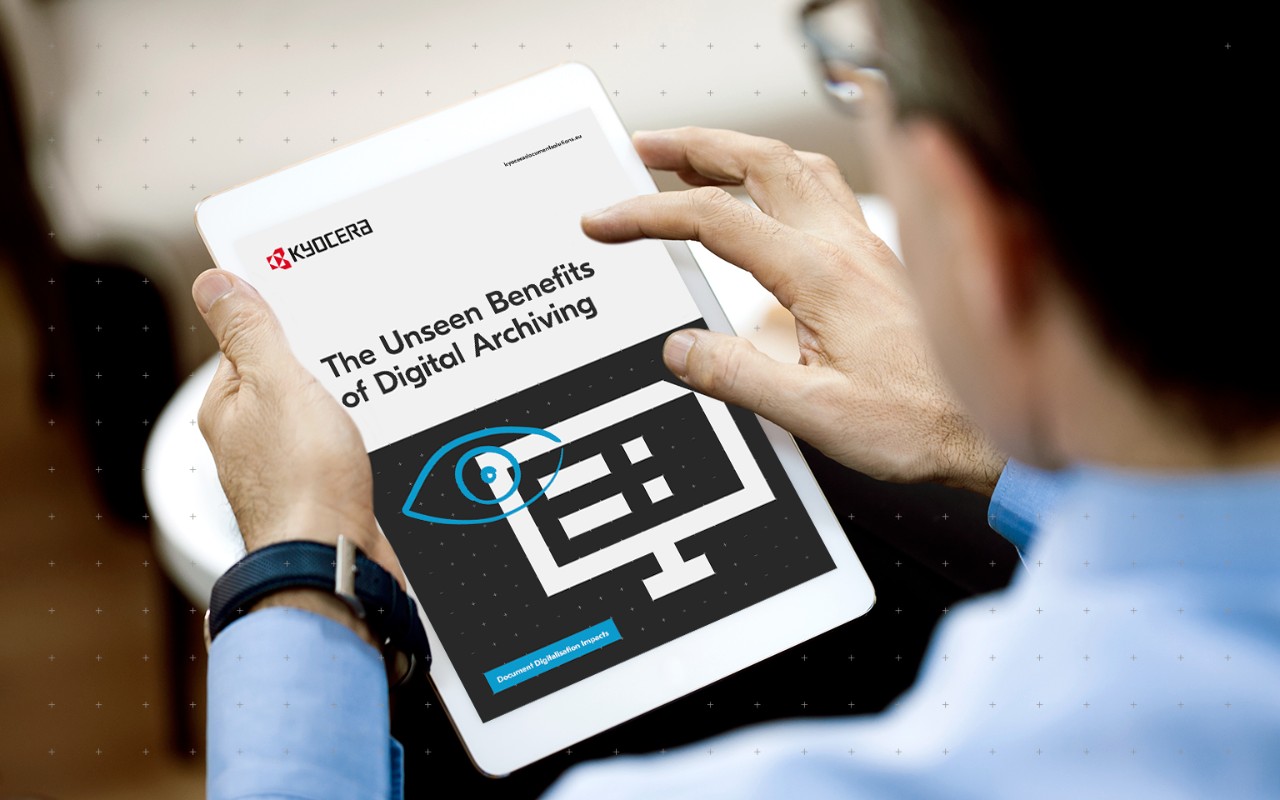Data archiving doesn’t receive nearly as much attention as it deserves. Although by its very definition inactive data isn’t used on a regular basis, it’s still important to hold onto it. Some documents must be retained for legal purposes, such as contracts and invoices, while GDPR requires companies to know exactly where their customers’ data is being stored, so that they can comply with the right to erasure, for example.
However, storing your business data on paper is incredibly inefficient and will hinder growth throughout your entire organisation. Paper documents require storage space, which has to be paid for, secured and maintained. In today’s highly competitive environment, companies can’t afford to waste money, and the need to control spending has been one of the catalysts driving the search for alternatives. One of the best solutions is going paperless, which enables you to convert documents into digital data that is cheaper to store and easier to use.
Kyocera Whitepaper
Despite these advantages, many companies are reluctant to go digital because they fear the costs might spiral out of control, or security might be an issue. Some manage to start the process of digitalisation but are not fully committed. As a result, data is still underused, meaning it continues to take up space and cost money, while its true potential is yet to be unlocked.
People are also more aware than ever of the importance of properly protecting data in all its forms. Recent scandals and high-profile cyberattacks have thrown data security into the spotlight for all the wrong reasons. The public are more cautious when it comes to handing over personal data, and companies are taking the issue seriously. However, there still appears to be a great deal of confusion about how exactly data should be managed, and a real lack of awareness about the solutions that exist to combat this problem.
In order to shed some light on the situation, our latest whitepaper will identify various pain points and explore how Content Services could remedy each one. Digital archiving is about more than saving money on storage space. This technology could rewrite the rules for safeguarding data and eliminate several of the negative effects caused by improper information management. The benefits of archiving are numerous, but businesses are slow to warm to the idea of investing in this technology because the advantages are not always obvious.
Discover the advantages of digital archiving, including the effects that are often unseen but actually contribute to achieving the goals most companies identify as priorities.

The True Advantages of Archiving Your Data Digitally
Inactive business data shouldn’t be a burden. Digital archiving provides an innovative solution to data storage that brings so much more than just financial benefits. Smart data management promises a number of knock-on benefits for other areas of your company including more robust security, improved compliance and greater efficiency.
